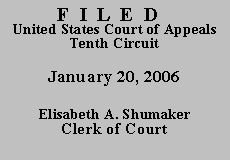

|
RICKKE L. GREEN, |
|
Before BRISCOE, LUCERO and MURPHY, Circuit Judges.
Green's petition was referred to a magistrate judge for initial proceedings pursuant to 28 U.S.C. § 636(b)(1)(B) and (C). Because Green was a pre-trial detainee, the magistrate judge construed the petition as arising under 28 U.S.C. § 2241. See Jacobs v. McCaughtry, 251 F.3d 596, 597 (7th Cir. 2001) (explaining that a state court defendant held pursuant to a state court judgment should file a habeas petition under § 2254, but that a state court defendant attacking his pretrial detention should bring a habeas petition under § 2241); Stringer v. Williams, 161 F.3d 259, 262 (5th Cir. 1998) (same). The magistrate judge recommended that the district court dismiss Green's pretrial habeas application without prejudice, concluding that abstention was appropriate based on the doctrine enunciated in Younger v. Harris, 401 U.S. 37 (1971). The magistrate judge also specifically noted that Green had failed to exhaust his state remedies. See Braden v. 30th Judicial Circuit Court, 410 U.S. 484, 489-91 (1973) (holding exhaustion requirement applies to § 2241 habeas petitions brought by pretrial detainees). As to Green's request that the district court order the initiation of criminal proceedings against the identified individuals, the magistrate recommended that the request be denied on the ground that the district court was without power to order the United States Attorney to initiate criminal prosecutions. See, e.g., United States v. Singleton, 165 F.3d 1297, 1300 (10th Cir. 1999). Upon de novo review, the district court adopted the magistrate judge's report and recommendation, dismissed Green's § 2241 habeas petition without prejudice, and denied Green's request for an order directing the initiation of criminal proceedings.
Green now seeks a certificate of appealability ("COA") to enable him to appeal the district court's denial of his § 2241 application. See Montez v. McKinna, 208 F.3d 862, 867 (10th Cir. 2000) (holding that state prisoners proceeding pursuant to § 2241 must obtain a COA to appeal the denial of a habeas petition). A COA may issue "only if the applicant has made a substantial showing of the denial of a constitutional right." 28 U.S.C. § 2253(c)(2). "A petitioner satisfies this standard by demonstrating that jurists of reason could disagree with the district court's resolution of his constitutional claims or that jurists could conclude the issues presented are adequate to deserve encouragement to proceed further." Miller-El v. Cockrell, 537 U.S. 322, 327 (2003). This "requires an overview of the claims in the habeas petition and a general assessment of their merits." Id. at 336. Further, when the district court denies a habeas petition on procedural grounds without reaching the applicant's underlying constitutional claim, a COA should issue only when the applicant shows, at least, that jurists of reason would find it debatable whether the petition states a valid claim of the denial of a constitutional right and that jurists of reason would find it debatable whether the district court was correct in its procedural ruling. Slack v. McDaniel, 529 U.S. 473, 484 (2000).
This court has reviewed Green's application for a COA and appellate brief, the district court's order, the magistrate judge's report and recommendation, and the entire record on appeal pursuant to the framework set out by the Supreme Court in Miller-El and concludes that Green is not entitled to a COA. The district court's resolution of Green's claims is not reasonably subject to debate and the claims are not adequate to deserve further proceedings. Accordingly, Green has not "made a substantial showing of the denial of a constitutional right" and is not entitled to a COA. 28 U.S.C. § 2253(c)(2).
This court DENIES Green's request for a COA and DISMISSES this appeal. Green's motion to proceed in forma pauperis on appeal is GRANTED.
Entered for the Court
ELISABETH A. SHUMAKER, Clerk
By
Deputy Clerk